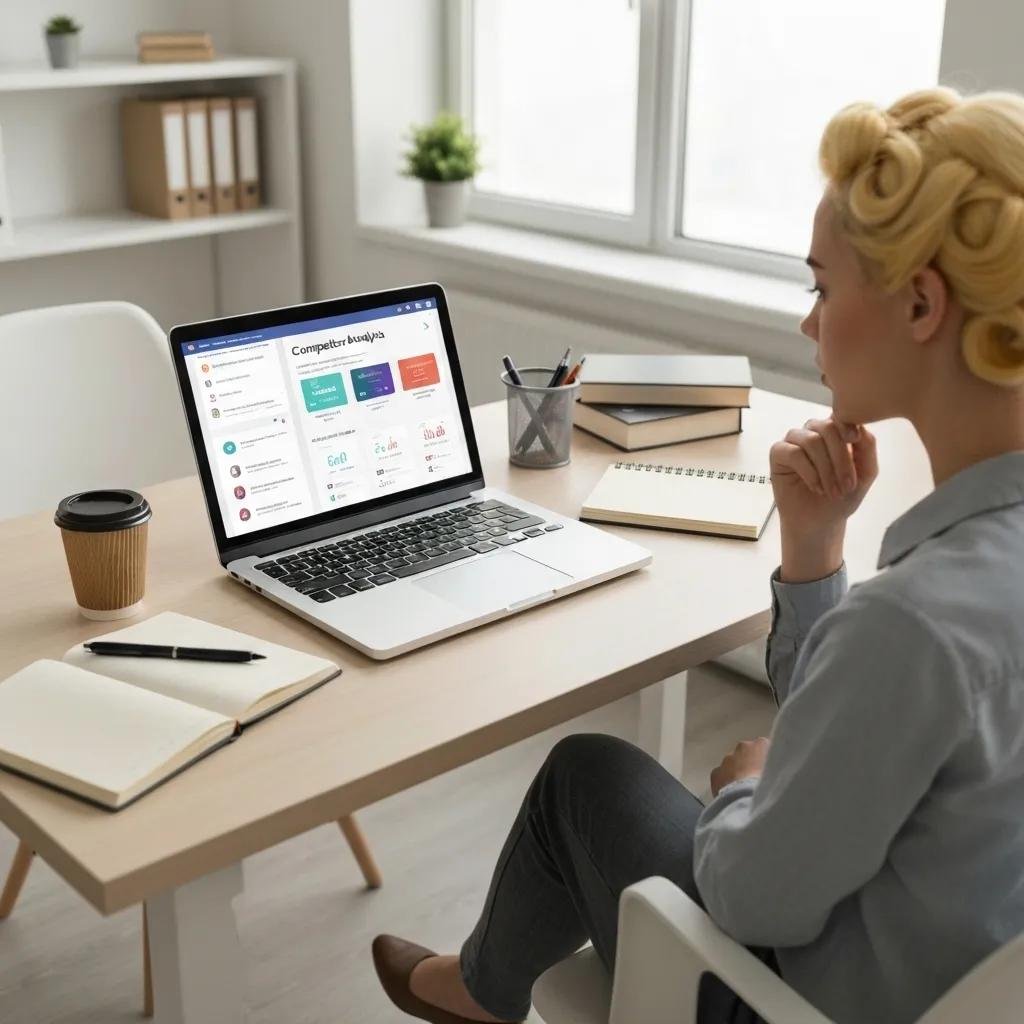Local SEO for Lawyers: Boost Your Law Firm’s Local Visibility
Local SEO, or local search engine optimization, is a digital marketing strategy specifically targeted towards optimizing a website’s visibility in local search results. In the context of lawyers, local SEO aims to improve the online presence and visibility of law firms in their local area, making it easier for potential clients to find and connect with them.
Local SEO is vital for lawyers as it helps them compete in the local market and attract clients in their geographical area. By appearing in local search results, lawyers can target potential clients who are actively searching for legal services within a specific location.
Understanding the key components of local SEO is crucial for lawyers to implement an effective strategy. This includes optimizing their website for local keywords, creating and optimizing a Google My Business listing, building local citations and ensuring NAP (Name, Address, Phone Number) consistency, obtaining positive online reviews, and implementing local schema markup to provide search engines with relevant information about their law firm.
Local link building strategies play a significant role in improving local SEO for lawyers. This involves getting listed on local directories and associations, building relationships with local businesses and organizations, and creating and promoting local content to attract authoritative local backlinks.
To track the success of their local SEO efforts, lawyers should monitor various factors. This includes tracking local keyword rankings to see how well their website is ranking in local search results, monitoring online reviews and managing their online reputation, and analyzing website traffic and local search performance to measure the effectiveness of their local SEO strategies.
By implementing effective local SEO techniques and strategies, lawyers can enhance their visibility in local search results, thereby attracting more potential clients and growing their practice in their local area.
Key takeaway:
Local SEO maximizes online visibility: Implementing local SEO strategies can help lawyers increase their online presence and attract potential clients who are searching for legal services in their local area.
Local SEO builds trust and credibility: Optimizing your law firm’s website and online profiles for local SEO signals to search engines and potential clients that you are a trusted and reputable local authority in the legal field.
Monitoring and analyzing local SEO performance is crucial: By tracking local keyword rankings, monitoring online reviews, and analyzing website traffic and local search performance, lawyers can evaluate the effectiveness of their local SEO efforts and make necessary adjustments for better results.
What is Local SEO?
Local SEO is a digital marketing strategy that helps businesses improve their online visibility locally. It focuses on optimizing a website and online presence to attract local customers. What is Local SEO? With Local SEO, businesses can target specific geographical areas and reach potential customers who are searching for similar services or products nearby. This strategy includes optimizing website content, creating local business listings, managing online reviews, and using location-specific keywords. What is Local SEO? Local SEO also takes into account factors like Google My Business profiles, local citations, and map listings. By implementing Local SEO strategies, businesses can increase their chances of appearing in local search results and drive more relevant traffic to their websites. Utilizing Local SEO can significantly enhance the visibility and prominence of businesses within their target markets, ultimately leading to increased online conversions and revenue.
Why is Local SEO Important for Lawyers?
Local SEO is crucial for lawyers because it helps them attract potential clients within their local area. By employing effective local SEO strategies, lawyers can increase their visibility on search engines and target individuals seeking legal services in their specific region.
1. Reach: Local SEO enables lawyers to reach a highly targeted audience, allowing them to connect with potential clients who are actively searching for legal assistance in their local area. This significantly increases the chances of generating qualified leads.
2. Competitiveness: Law firms face intense competition, and local SEO provides them with a competitive edge. By optimizing their online presence locally, lawyers can outrank their competitors in search engine results pages, ensuring they are the first choice for individuals looking for legal representation in the specific geographic area.
3. Trust and credibility: When lawyers appear in local search results, it boosts their credibility and establishes trust with potential clients. Being displayed prominently in local listings and maps implies reliability and expertise, making individuals more likely to choose their services.
4. Cost-effective: Local SEO is a cost-effective marketing strategy for lawyers. Unlike traditional advertising methods, such as billboards or television commercials, local SEO enables lawyers to target their marketing efforts specifically to individuals in their area who are actively searching for their services, ensuring maximum return on investment.
5. Enhanced website visibility: Local SEO tactics, such as optimizing local keywords and having consistent NAP (Name, Address, Phone number) information, help lawyers improve their website’s visibility in local search results. This drives more traffic to their website, leading to higher conversion rates and increased client acquisition.
By implementing effective local SEO strategies, lawyers can benefit from increased visibility, improved credibility, and a higher chance of connecting with potential clients in their local area.
Why is Local SEO Important for Lawyers?
Understanding Local SEO for Lawyers
Local SEO is crucial for lawyers who want to attract clients in their specific geographic area. Understanding local SEO techniques is essential for optimizing your law firm’s online presence. To achieve this, there are several key aspects to consider.
1. Claiming and optimizing your Google My Business listing is a must. By doing so, you ensure your law firm appears in local search results, providing potential clients with accurate information.
2. It’s important to ensure that your website is properly optimized for local keywords. Incorporate location-specific keywords in your website content, meta tags, and headings. Doing this will significantly increase your visibility in local search results.
3. Developing a strong online reputation is paramount. Encourage satisfied clients to leave reviews on platforms like Google, Yelp, and Avvo. Positive reviews not only enhance your credibility but also improve your local search rankings.
4. Creating localized content plays a vital role. Publish blog posts or articles that address legal issues specific to your target location. This strategy helps establish you as a local authority in your practice area.
An exemplary case is that of a law firm in Los Angeles. The firm implemented a comprehensive local SEO strategy, understanding the importance of local SEO for lawyers. By optimizing their website using local keywords, claiming their Google My Business listing, and actively engaging with clients to generate positive online reviews, they witnessed a staggering 45% increase in visibility in local search results. Consequently, there was a significant rise in new client inquiries. By comprehending and implementing the ins and outs of local SEO, the law firm successfully attracted more clients in their targeted geographic area.
What are the Key Components of Local SEO?
The key components of local SEO can be summarized in the following list:
Keyword research and optimization: This involves identifying relevant keywords that potential clients are using to search for legal services in your area and optimizing your website content with those keywords.
Creating and optimizing Google My Business listing: A Google My Business listing is essential for local SEO. It helps your law firm appear in local search results and includes important information such as your address, phone number, and business hours.
Building local citations and NAP consistency: Local citations are online mentions of your law firm’s name, address, and phone number (NAP) on various directories and websites. Consistency in NAP across these citations is crucial for establishing trust and credibility with search engines.
Obtaining positive online reviews: Online reviews from satisfied clients can significantly impact your local SEO. Encourage clients to leave reviews on platforms like Google, Yelp, and Avvo, as positive reviews can boost your visibility and reputation in local search results.
Implementing local schema markup: Schema markup is a code that you can add to your website to provide search engines with specific information about your law firm, such as your location, practice areas, and reviews. Implementing local schema markup helps search engines understand and display your information more effectively.
How Does Local SEO Differ from Traditional SEO?
How Does Local SEO Differ from Traditional SEO?
Local SEO differs from traditional SEO in several key ways:
Target audience: Local SEO focuses on targeting a specific geographic location, such as a city or region, while traditional SEO targets a broader audience. Local SEO aims to attract customers who are physically near a business and likely to visit in person.
Google My Business: Local SEO involves creating and optimizing a Google My Business listing. This includes providing accurate business information, such as address, phone number, and opening hours. Google My Business listings appear in Google Maps and local search results, providing valuable visibility for local businesses.
Online reviews and reputation management: Local SEO places a greater emphasis on online reviews and reputation management. Positive reviews and ratings can boost a business’s visibility and credibility in local search results. Local businesses should actively monitor and manage their online reputation to attract more customers.
Local link building: Local SEO incorporates strategies for building links from local directories, associations, and other local businesses. This helps establish the business’s authority and relevance within the local community.
To make the most of local SEO, it’s important for lawyers to understand these key differences and implement strategies that specifically target their local audience. By focusing on local search optimization, lawyers can increase their online visibility, attract more local clients, and grow their practice.
Optimizing Your Law Firm’s Website for Local SEO
Want to bring more clients to your law firm through online searches? Look no further! In this section, we’ll dive into the secrets of optimizing your law firm’s website for local SEO. From conducting keyword research to creating an enticing Google My Business listing, we’ll cover it all. We’ll also explore the power of local citations, the importance of positive online reviews, and the impact of local schema markup. Get ready to boost your online visibility and attract potential clients in your area!
1. Keyword Research and Optimization
To improve your law firm’s visibility in local search results, keyword research and optimization is an essential step. Here, we outline the key steps you need to consider:
Create a comprehensive list of potential keywords that are relevant to your law firm’s practice areas and location.
Utilize keyword research tools to analyze the search volume and competition for each keyword. Give priority to keywords with high search volume and low competition.
Prioritize long-tail keywords that are more specific and targeted to your niche. These keywords generally have lower competition and higher conversion rates.
Naturally incorporate your chosen keywords throughout your website’s content, including in page titles, headings, meta tags, and body text.
Optimize your website’s URL structure by including relevant keywords. Ensure that each page has descriptive and keyword-rich URLs.
To enhance the effectiveness of your keyword research and optimization efforts, consider the following suggestions:
Regularly monitor and update your keyword strategy to remain relevant and competitive in your local market.
Analyze your competitors’ keywords and identify opportunities to target keywords they may have overlooked.
Continuously track your website’s performance and make adjustments to optimize your keyword strategy based on data and trends.
Stay updated with the latest trends and changes in search engine algorithms to ensure that your keyword optimization techniques align with best practices.
2. Creating and Optimizing Google My Business Listing
When it comes to local SEO for lawyers, creating and optimizing your Google My Business listing is crucial for 2. Creating and Optimizing Google My Business Listing. This listing plays a significant role in improving your online visibility and attracting potential clients. Here are the steps to effectively create and optimize your Google My Business listing:
Claim your listing: Start by claiming your Google My Business listing if it is not already claimed. This ensures that you have control over the information displayed.
Provide accurate information: Enter all the necessary details about your law firm, including the name, address, phone number (NAP), and website URL. It is important to ensure accuracy as this information will be displayed to potential clients.
Add relevant categories: Select the appropriate categories that best describe your law firm’s practice areas. This helps Google understand your business and improves your chances of appearing in relevant local searches.
Create a compelling business description: Craft a concise and compelling description of your law firm. Highlight your unique selling points, areas of expertise, and the value you provide to clients.
Add high-quality photos: Upload high-resolution images of your law firm’s exterior, interior, team, and any other relevant pictures. Visual content can enhance your listing and make it more appealing to users.
Gather positive reviews: Encourage satisfied clients to leave positive reviews on your Google My Business listing. Reviews not only improve your online reputation but also boost your visibility in local search results.
Monitor and respond to reviews: Regularly monitor and respond to the reviews left on your listing. Promptly address any negative feedback and engage with positive reviews to show your commitment to client satisfaction.
By following these steps, you can maximize the impact of your Google My Business listing in attracting local clients and boosting your overall local SEO efforts.
3. Building Local Citations and NAP Consistency
When it comes to building local citations and maintaining NAP consistency for your law firm, there are specific steps you should follow:
Identify relevant online directories and citation sources for your industry, such as legal directories, local business directories, and industry-specific platforms.
Create consistent and accurate NAP (Name, Address, Phone Number) information for your law firm across all online directories and citation sources. Consistency is crucial to ensure that search engines can associate your business with the correct location.
Optimize your Google My Business listing by providing complete and accurate information about your law firm. This includes updating your address, phone number, business hours, and website URL. Make sure to verify your listing to establish credibility.
Monitor and correct any inconsistencies in your NAP information across different directories. Inaccurate or inconsistent information can confuse potential clients and negatively impact your local search rankings.
Regularly update your online directories and citation sources with any changes to your law firm’s NAP information, such as address changes or new phone numbers.
Consider using citation management tools or services to streamline the process of building and managing local citations. These tools can help ensure consistency and save time.
By following these steps, you can build strong local citations and maintain NAP consistency for your law firm, increasing its visibility and credibility in local search results.
4. Obtaining Positive Online Reviews
Obtaining positive online reviews is an essential aspect of local SEO for lawyers. Positive reviews hold great significance as they not only help in establishing trust and credibility with potential clients but also contribute significantly to improving your law firm’s online visibility and ranking. To effectively acquire positive online reviews, consider the following strategies:
Deliver exceptional service: Providing outstanding legal services and ensuring a positive client experience are crucial in encouraging clients to leave positive reviews.
Ask for reviews: Actively seek reviews from satisfied clients during or after their case or legal matter. You can do this by sending an email, making a follow-up phone call, or including a call-to-action on your website or invoices.
Simplify the review process: Make it straightforward for clients to leave reviews by providing direct links or step-by-step instructions on popular review platforms such as Google, Yelp, or Avvo.
Offer incentives: Consider providing a small incentive, like a discount on future services or a personalized thank you note, to clients who leave a review.
Respond to reviews: Exhibit gratitude for positive reviews by responding to them promptly and with personalization. This demonstrates your dedicated commitment to ensuring client satisfaction.
By implementing these strategies, you can cultivate a robust collection of positive online reviews that will not only enhance your law firm’s reputation but also bolster its local SEO efforts.
5. Implementing Local Schema Markup
Implementing Local Schema Markup is an essential step in optimizing your law firm’s website for Local SEO and enhancing its visibility in search engine results. To successfully implement it, follow these steps: 1. Integrate structured data markup into the HTML code of your website. 2. Utilize the LocalBusiness schema to provide comprehensive information about your law firm, including its name, address, phone number, and other relevant details. 3. Incorporate the LegalService schema to specify the types of legal services your firm offers, such as personal injury, family law, or criminal defense. 4. Highlight the individual attorneys in your firm and their areas of expertise by including the Attorney schema. 5. Showcase positive reviews and ratings from your clients using the Review schema. 6. Optimize your schema markup by incorporating relevant keywords and ensuring the accuracy and currency of the provided information. 7. Validate your schema markup implementation and display accuracy by testing it with Google’s Structured Data Testing Tool. By implementing Local Schema Markup, you can boost your law firm’s online presence and increase the likelihood of appearing in local search results. This will make it easier for potential clients to find and contact your firm.
Local Link Building Strategies for Lawyers
Looking to boost your law firm’s online presence? Dive into the world of local link building strategies for lawyers. Discover how getting listed on local directories and associations, building relationships with local businesses and organizations, and creating and promoting local content can skyrocket your firm’s visibility in search results. With a touch of creativity and the right tactics, you’ll have the power to connect with potential clients and dominate the local SEO game. Let’s jump in!
1. Getting Listed on Local Directories and Associations
Create a comprehensive profile on popular local directories such as Yelp, Google My Business, and Yellow Pages. Include accurate and up-to-date information about your law firm, such as the name, address, phone number (NAP), and website.
Optimize your directory listings by adding relevant keywords and descriptions that highlight your areas of expertise and services. This will help potential clients find you when they search for specific legal services in your area.
Ensure that your NAP information is consistent across all directories and associations. Inconsistencies can confuse both search engines and potential clients, leading to a negative impact on your local SEO efforts.
Consider joining local professional associations and organizations related to law, for getting listed on local directories and associations. Not only will this help build your credibility and reputation among peers, but it can also lead to referral opportunities and backlinks to your website.
A true success story is that of a law firm that implemented the above strategies and saw a significant boost in their local online presence by getting listed on local directories and associations. By securing listings on various local directories and associations, they were able to improve their search engine rankings and attract more targeted traffic to their website. This ultimately resulted in a higher number of inquiries and an increase in client conversions.
2. Building Relationships with Local Businesses and Organizations
Building relationships with local businesses and organizations is an important aspect of local SEO for lawyers. It can help enhance your visibility in the local community and attract potential clients who are already connected to these businesses or organizations. Here are some strategies to consider:
Attend local networking events and connect with other professionals in your area. This can help you establish relationships and potentially generate referrals.
Partner with complementary businesses or organizations to co-host events or offer joint promotions. For example, if you specialize in family law, you could collaborate with a local childcare center to host a seminar on child custody.
Support local causes and sponsor community events. This demonstrates your commitment to the community and can help raise awareness of your law firm.
Offer to provide valuable content or expert advice to local businesses or organizations. This could involve writing guest blog posts, conducting workshops, or participating in panel discussions.
Consider joining local business associations or chambers of commerce. This can provide opportunities for networking and collaboration with other professionals in your area.
Building relationships with local businesses and organizations is an ongoing process that requires time and effort. By cultivating these connections, you can strengthen your local presence and establish yourself as a trusted resource within your community.
Throughout history, businesses and organizations have recognized the importance of building relationships with each other. From early trade routes to modern-day partnerships, collaboration and networking have played a crucial role in driving success. In the realm of local SEO for lawyers, building relationships with local businesses and organizations is not only beneficial for generating referrals and establishing a strong local presence, but it also fosters a sense of community and demonstrates a commitment to the well-being of the area. By actively engaging and collaborating with other professionals, lawyers can tap into their existing networks and expand their reach to potential clients who are already connected to these businesses or organizations. Through events, sponsorships, and mutually beneficial partnerships, lawyers can enhance their visibility, build trust, and ultimately, grow their client base. Building relationships with local businesses and organizations is not just about business success, but also about forging meaningful connections within the community, leaving a lasting impact, and contributing to the collective growth and prosperity.
3. Creating and Promoting Local Content
To achieve successful local SEO for lawyers, it is crucial to focus on creating and promoting local content. By developing content that is tailored to your specific local area, you can effectively target and engage with your local audience. Here are some helpful strategies to assist you in the creation and promotion of local content:
Identify local topics: Take the time to research and identify topics that are relevant to your local audience. This could involve local events, news, community issues, or legal matters specific to your area.
Create informative content: Your aim should be to develop high-quality content that offers valuable information to your target audience. This content can take the form of blog posts, articles, guides, or videos.
Optimize for local keywords: Enhance the visibility of your content in local search results by incorporating local keywords. Focus on keywords that include your city, region, or specific legal services offered in your area.
Promote through social media: Attract and engage with your local audience by sharing your local content on social media platforms. Encourage your followers to share and interact with your content.
Collaborate with local influencers: Partnering with local influencers, bloggers, or community organizations can help you promote your local content. This collaboration will broaden your reach and establish credibility in your local area.
Engage with local media: Reach out to local media outlets, newspapers, or online publications to contribute guest articles or provide expert opinions on legal matters. This will increase your visibility and authority.
By incorporating these strategies, you can effectively create and promote local content that resonates with your target audience, ultimately improving your local SEO efforts.
Additional suggestions to enhance your local content strategy include collaborating with local organizations for co-branded content, conducting interviews with local experts or community leaders, creating location-specific FAQs or legal resources, and regularly updating your content to stay relevant.
Monitoring and Measuring the Success of Your Local SEO Efforts
Curious to gauge how successful your local SEO efforts are? Let’s dive into monitoring and measuring their impact. From tracking local keyword rankings to analyzing website traffic and online reviews, we’ll explore various metrics that help you gauge the effectiveness of your local SEO strategy. Buckle up to discover the vital stats and insights that’ll empower you to fine-tune your approach and dominate the local search landscape.
1. Tracking Local Keyword Rankings
Tracking local keyword rankings is crucial for optimizing your law firm’s website and ensuring its visibility in local search results.
Choose targeted keywords: Identify specific keywords related to the services offered by your law firm and the local area you serve.
Utilize a reliable keyword tracking tool: Make use of a trustworthy keyword tracking tool to monitor the rankings of your chosen keywords in local search results.
Evaluate search volume and competition: Analyze the search volume and competition level for each keyword to prioritize your optimization efforts.
Monitor progress over time: Regularly check the rankings of your keywords to keep track of your website’s progress in local search results.
Review and optimize: If your website’s rankings for certain keywords are not improving, revisit your keyword optimization strategies and make necessary adjustments.
Fact: According to a study, 46% of all Google searches have local intent, emphasizing the significance of tracking local keyword rankings for businesses.
2. Monitoring Online Reviews and Reputation
Monitoring online reviews and reputation is a crucial aspect of local SEO for lawyers. It helps in gaining insights into how your law firm is perceived by clients and the general public. Here are some key points to consider:
Stay proactive: Regularly monitor online platforms such as Google My Business, Yelp, and legal directories for reviews and ratings.
Respond promptly: Address both positive and negative reviews in a timely manner. Thank clients for positive feedback and address any concerns raised in negative reviews professionally and constructively.
Encourage reviews: Actively encourage clients to leave reviews after their experience with your law firm. Positive reviews can enhance your online reputation and attract new clients.
Manage negative reviews: If your law firm receives negative reviews, it’s important to respond tactfully and resolve any issues mentioned. This shows potential clients that you care about customer satisfaction.
Monitor sentiments: Pay attention to the sentiments expressed in reviews. Identify common themes or areas that receive praise or criticism. This can help you identify areas of improvement for your law firm.
Track changes: Keep track of changes in your online reputation over time. Monitor trends in the ratings and reviews you receive to understand the impact of your efforts to improve client satisfaction.
By actively monitoring online reviews and proactively managing your law firm’s reputation, you can maintain a positive image and attract clients through effective local SEO strategies.
Analyzing Website Traffic and Local Search Performance
Analyzing website traffic and local search performance is crucial for lawyers who want to optimize their online presence. By actively monitoring and measuring these metrics, law firms can make informed decisions to enhance their local SEO strategy.
1. Analyzing website traffic: Regularly tracking website traffic allows lawyers to evaluate the effectiveness of their marketing efforts. It provides valuable insights into the number of visitors, their demographics, and the sources of their traffic. Through careful analysis of this data, law firms can identify trends, target specific demographics, and make necessary adjustments to their marketing campaigns accordingly.
2. Assessing local search performance: Evaluating how well a law firm’s website ranks in local search results is an essential aspect of local search performance. Monitoring keyword rankings for relevant local searches helps law firms understand their visibility to potential clients in their target areas. By continuously tracking their rankings, law firms can identify areas for improvement and adapt their SEO strategies to achieve better local search performance.
3. Measuring user engagement: Apart from website traffic and search rankings, accurately measuring user engagement is vital. Lawyers can analyze metrics such as bounce rates, average time spent on the website, and click-through rates to determine if their website content is engaging and meeting the needs of their target audience. By making adjustments to optimize user experience, lawyers can drive more conversions and effectively engage with potential clients.
By consistently analyzing website traffic and local search performance, lawyers can make data-driven decisions to improve their online presence. This enables them to attract more potential clients, increase their visibility in local searches, and ultimately grow their business.
Some Facts About Local SEO for Lawyers:
✅ Online search is the primary method for people looking for legal services. – Neglecting local SEO for attorneys can result in a loss of business opportunities. (Source: Semrush)
✅ Being ranked in the top three results in local SEO is crucial for attracting potential clients. (Source: Semrush)
✅ Citations, particularly on Google Business Profile (GBP), are important for local SEO. Consistency in name, address, and phone number (NAP) across different websites and directories is crucial for good rankings. (Source: Semrush)
✅ Providing comprehensive information on your Google Business Profile can help attract potential clients. Including a detailed description, opening hours, and relevant categories can improve visibility. (Source: Semrush)
✅ Encouraging clients to leave reviews, including local and relevant keywords, can boost confidence in your services. Negative reviews should be seen as an opportunity for improvement. (Source: Semrush)
Frequently Asked Questions
1. How can I improve my law firm’s local rankings in organic search results?
To improve your law firm’s local rankings in organic search results, you can follow these actionable steps:
Create high-quality, well-written content on your law firm’s website, incorporating important local keywords.
Optimize your website pages to target specific local keywords related to your practice area.
Optimize your website for the primary location of your law firm.
Build local link building campaigns to increase website authority.
Ensure fast site speed to provide a positive user experience.
2. How important are title and meta tags for local SEO for lawyers?
Title and meta tags play a crucial role in local SEO for lawyers. These tags help search engines understand the content and relevance of your website. Including targeted local keywords in your title and meta tags can improve your law firm’s visibility in local search results.
3. What are some tips for optimizing my Google Business Profile to improve local rankings?
To optimize your Google Business Profile for better local rankings, you can follow these tips:
Accurately describe your law firm’s business within the provided character limit on your Google Business Profile (GBP).
Choose the right category that best represents your law firm.
Add relevant and appealing photos of your premises and legal team.
Schedule regular posts on your GBP to engage with potential clients.
Add frequently asked questions (FAQs) to provide valuable information to potential clients.
4. How can citations and consistent NAP data help improve local rankings for law firms?
Citations and consistent name, address, and phone number (NAP) data are important for local SEO rankings. Building citations on platforms like Yelp, Facebook, and legal directories can increase your online visibility. Consistency in NAP data across all online directories helps avoid confusion and signals to search engines that your law firm is trustworthy.
5. How can reviews and ratings impact local SEO for law firms?
Reviews and ratings play a crucial role in local SEO for law firms. Positive reviews can boost your law firm’s visibility and rankings in local search results. It is important to provide stellar services and encourage clients to leave 5-star reviews, including local and relevant keywords. Negative reviews should be seen as an opportunity for improvement and addressing client concerns.
6. What tools or services can assist with implementing local SEO strategies for law firms?
There are various tools and services available to assist with implementing local SEO strategies for law firms, including:
Semrush’s Listing Management tool helps improve local SEO rankings by providing accurate and up-to-date business listings.
Moz Local and Yext can assist in building local citations.
BrightLocal is a citation service provider that can help with citation building.








